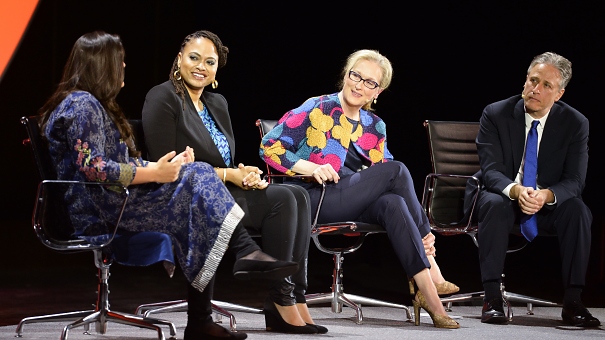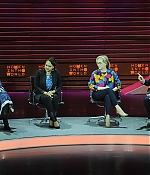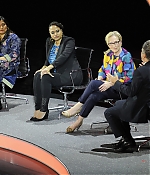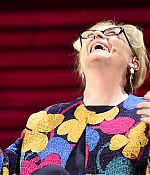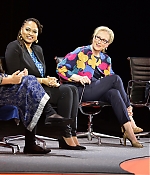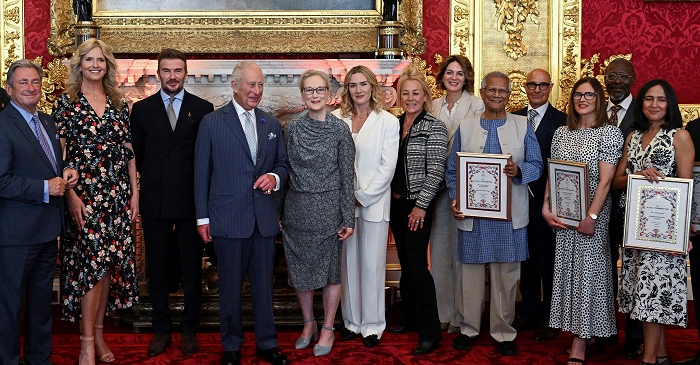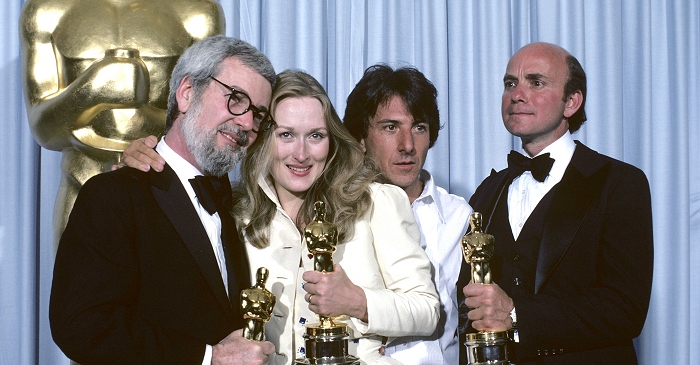|
Simply Streep is your premiere online resource on Meryl Streep's work on film, television and in the theatre - a career that has won her acclaim to be one of the world's greatest living actresses. Created in 1999, Simply Streep has built an extensive collection over the past 25 years to discover Miss Streep's body of work through thousands of photographs, articles and video clips. Enjoy your stay and check back soon.
|
“When a woman makes a film, that is a radical act,” director and screenwriter Ava DuVernay said at the Women in the World Summit in New York City. By that definition – and by any other, really – she and the other two women on stage, Pakistani documentary filmmaker Sharmeen Obaid-Chinoy and prolific actress Meryl Streep, are all radicals. All three women not only make their presence strongly felt in the male-dominated film industry, but tackle women’s issues and promote activism in their work – whether through portraying brave women so powerfully that even men can’t help but empathize, or exposing women’s struggles by documenting or dramatizing them. In Streep’s latest film, Suffragette–a British historical drama that will be released in the U.S. in October – she plays Emmeline Pankhurst, who led British women in their fight for the vote a hundred years ago. If a movie about voting rights sounds dull to you, you’re probably American: The British women’s movement “was different from the one in the U.S., which was very polite,” Streep said. “In England, it was violent.” After their attempts to petition Parliament failed, the British suffragettes took a creative approach: blowing up the politicians’ golf courses. But it was “about wrecking property, not hurting people,” she said.
The issue of women’s voting “is personal to me,” Streep said. “My grandmother had three children and still couldn’t vote. Not in the school board election, let alone for president.” DuVernay, who became the first African-American woman nominated for a Best Picture Oscar with Selma, her biopic about Martin Luther King, spoke about how different portraits of activism complement each other. “This idea of the political as personal has a vibrancy now,” she said. “You can see the interconnections. My hope is that people of color who are involved in the Black Lives Matter movement might see Suffragette and get ideas.” Obaid-Chinoy, who won an Oscar in 2012 for her documentary about acid attacks on women in Pakistan, tends to focus on exposing injustice in her home country. But her films also highlight inspiring women. One of her recent projects, ‘Ho Yaqeen: Syeda Fatima,’ follows a female activist fighting for the rights of bonded laborers in her village in Punjab. In a clip shown to the audience, a woman boldly confronts a man who beats his workers. She refuses to leave or back down as he tries to send her away, denies using violence and then defends it as his right.
From the time we’re little girls, we read all of literature, you know, all of history. It’s really about boys, most of it. But I can feel more like Peter Pan than Tinkerbell… I wanted to be Tom Sawyer, not Becky.
Daily Show host Jon Stewart, who moderated the panel, pointed to a common thread in all three films: “The men are assholes,” he said, to the amusement of the women onstage as well as the audience. But Obaid-Chinoy doesn’t mind hurting men’s feelings. “I like to make men uncomfortable,” she said. She sees discomfort as the best impetus for change. “It’s only when you’re uncomfortable that you will perhaps look at yourself in the mirror and not like your reflection and think, maybe there is something wrong with the way I think.”


